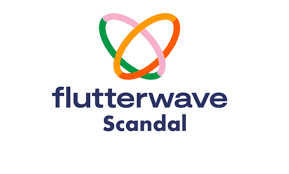In the fast-paced world of fintech, scandals can erupt seemingly out of nowhere, shaking the foundations of even the most prominent players in the industry. One such scandal that sent shockwaves through the financial technology sector revolves around Flutterwave, a company once lauded for its innovative solutions and rapid growth. However, beneath the surface of its success lies a tangled web of controversy, raising questions about transparency, accountability, and the future of fintech.
The Rise of Flutterwave: From Humble Beginnings to Industry Leader
Flutterwave burst onto the fintech scene with a promise to revolutionize the way payments are made in Africa and beyond. Founded in 2016 by Nigerian entrepreneur Olugbenga Agboola, the company quickly gained traction by offering a seamless platform for businesses to accept payments from customers across multiple channels. With partnerships with major banks and payment processors, Flutterwave appeared poised for unprecedented success, attracting significant investment from venture capitalists eager to capitalize on Africa’s burgeoning digital economy.
Allegations of Fraud and Mismanagement: The Catalyst for Crisis
Despite its early success, Flutterwave soon found itself embroiled in controversy as allegations of fraud and mismanagement surfaced. Reports emerged of funds disappearing from users’ accounts without explanation, leaving merchants and customers alike in financial limbo. Furthermore, whistleblowers within the company came forward with claims of unethical practices, including the manipulation of transaction data to inflate revenue figures and deceive investors.
The Fallout: Repercussions for Flutterwave and the Fintech Industry
As news of the scandal spread, investor confidence in Flutterwave plummeted, leading to a sharp decline in the company’s valuation and casting doubt on its long-term viability. Regulatory authorities launched investigations into the allegations, further tarnishing Flutterwave’s reputation and raising concerns about the lack of oversight in the fintech sector. The scandal also served as a wake-up call for investors and stakeholders, highlighting the risks inherent in the rapid expansion of fintech startups and the importance of due diligence in vetting potential partners.
Rebuilding Trust: Navigating the Road to Redemption
In the aftermath of the scandal, Flutterwave faced an uphill battle to regain the trust of its users and investors. The company implemented a series of reforms aimed at improving transparency and accountability, including enhanced oversight mechanisms and stricter internal controls. It also sought to repair its damaged reputation through proactive communication and engagement with stakeholders, acknowledging past mistakes and outlining a clear path forward.
Lessons Learned: Implications for the Future of Fintech
The Flutterwave scandal serves as a cautionary tale for the fintech industry, highlighting the need for robust governance structures and ethical standards to prevent similar crises from occurring in the future. It underscores the importance of transparency, integrity, and accountability in building trust with customers, investors, and regulatory authorities. Moving forward, fintech companies must prioritize compliance and risk management to ensure the sustainability of their operations and uphold the integrity of the financial system.
Conclusion: Navigating Uncertainty in the Fintech Landscape
The Flutterwave scandal represents a pivotal moment in the evolution of the fintech industry, forcing companies to confront the inherent risks and challenges of operating in a rapidly changing environment. While the fallout from the scandal may have been damaging, it also presents an opportunity for introspection and reform. By learning from past mistakes and embracing a culture of accountability, the fintech sector can emerge stronger and more resilient, poised to unlock the full potential of digital finance for the benefit of all.

